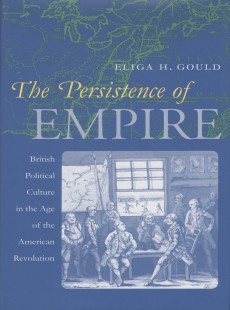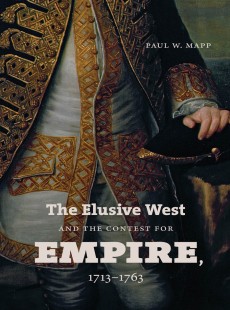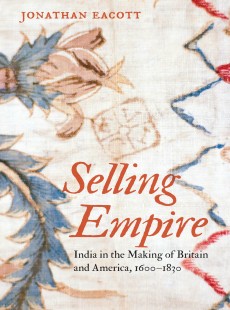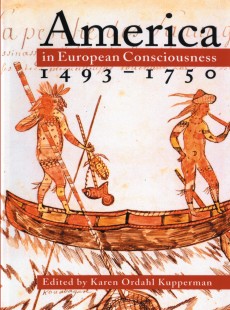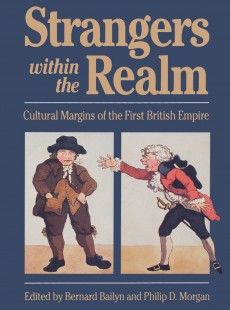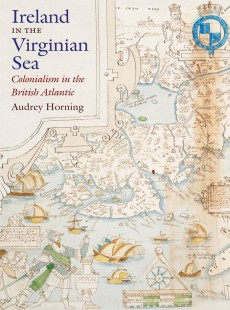
Ireland in the Virginian Sea
Colonialism in the British Atlantic
Audrey Horning
 Publisher: Omohundro Institute
Publisher: Omohundro Institute
Imprint: OIEAHC
Published: 06/2013
Reprint: 2017
Pages: 406
Subject: Colonial, Revolutionary Era & Early American History,British History,European History
Paperback ISBN: 9781469633473
eBook ISBN: 9781469610733
DESCRIPTION
In the late sixteenth century, the English started expanding westward, establishing control over parts of neighboring Ireland as well as exploring and later colonizing distant North America. Audrey Horning deftly examines the relationship between British colonization efforts in both locales, depicting their close interconnection as fields for colonial experimentation. Focusing on the Ulster Plantation in the north of Ireland and the Jamestown settlement in the Chesapeake, she challenges the notion that Ireland merely served as a testing ground for British expansion into North America. Horning instead analyzes the people, financial networks, and information that circulated through and connected English plantations on either side of the Atlantic.
In addition, Horning explores English colonialism from the perspective of the Gaelic Irish and Algonquian societies and traces the political and material impact of contact. The focus on the material culture of both locales yields a textured specificity to the complex relationships between natives and newcomers while exposing the lack of a determining vision or organization in early English colonial projects.
ABOUT THE AUTHOR
Audrey Horning is professor of archaeology and director of research for Past Cultural Change at Queen's University Belfast. This is her fifth book.
AWARDS
James Mooney Award, Southern Anthropological Society (2014)
REVIEWS
"Audrey Horning interweaves the history and archaeology of seventeenth-century Ulster and Virginia to reevaluate the cliché of Ireland as a testing ground for North American colonization. In reconstructing these intersecting historical archaeologies, she provides dense and provocative case studies of Atlantic expansion. A valuable book."
--Peter Pope, Memorial University of Newfoundland
"This significant book corrects the standard but usually cursory assertion that colonizing Ireland served as a model for England’s project in North America. In Horning’s masterful work, the undertakings in Ulster and in Jamestown/Albemarle occurred simultaneously and were closely intertwined but ultimately distinct. No scholar will again be able to offer glib statements of the linkages between Irish and American colonialisms; instead we all must take into account Horning’s sophisticated and nuanced treatment of the interplay between these two projects."
--Carla Gardina Pestana, University of California, Los Angeles
"An account both theoretically sophisticated and attentive to detail and context. Every historical archaeologist must read and digest this book; Horning tells us not just about Ireland and Virginia, but instructs us in how we should practice a more sensitive and nuanced historical archaeology."
--Matthew H. Johnson, Northwestern University
"Horning provides the most detailed and sophisticated account of the early seventeenth-century migrations and the communities that resulted in Ireland and Virginia. Thanks to the meticulous sifting of the surviving archaeological and written evidence, her sometimes provocative conclusions will greatly advance discussion of the nature of colonialism in America and Ireland."
--Toby Barnard, University of Oxford
"Usefully encourages us to add complexity to often-simplified understandings of cultural conflict."
--Journal of Interdisciplinary History
"A remarkable, creative work that uncovers and illumines. . . . Essential. Upper-division undergraduates and above."
--Choice
"Meticulous, thoughtful, and a welcome contribution."
--H-War
"[A] wide-ranging and illuminating study of colonialism in the British Atlantic."
--Journal of Colonialism and Colonial History
"Horning's larger conclusions will surely generate productive study and debate."
--Journal of British Studies
"In producing this accessible yet sophisticated account of two overlapping but distinct colonial enterprises, Horning offers a subtle interpretation of the complex early modern English plantation experience."
--American Historical Review
"Generate[s] a provocative, new perspective on the old debate of Ireland as a colonial model for developing Jamestown."
--Southern Historian
"A compelling, nuanced, richly detailed and solidly documented investigation of colonialism, colonizers, and the colonized."
--Journal of the North Carolina Association of Historians
RELATED TITLES


